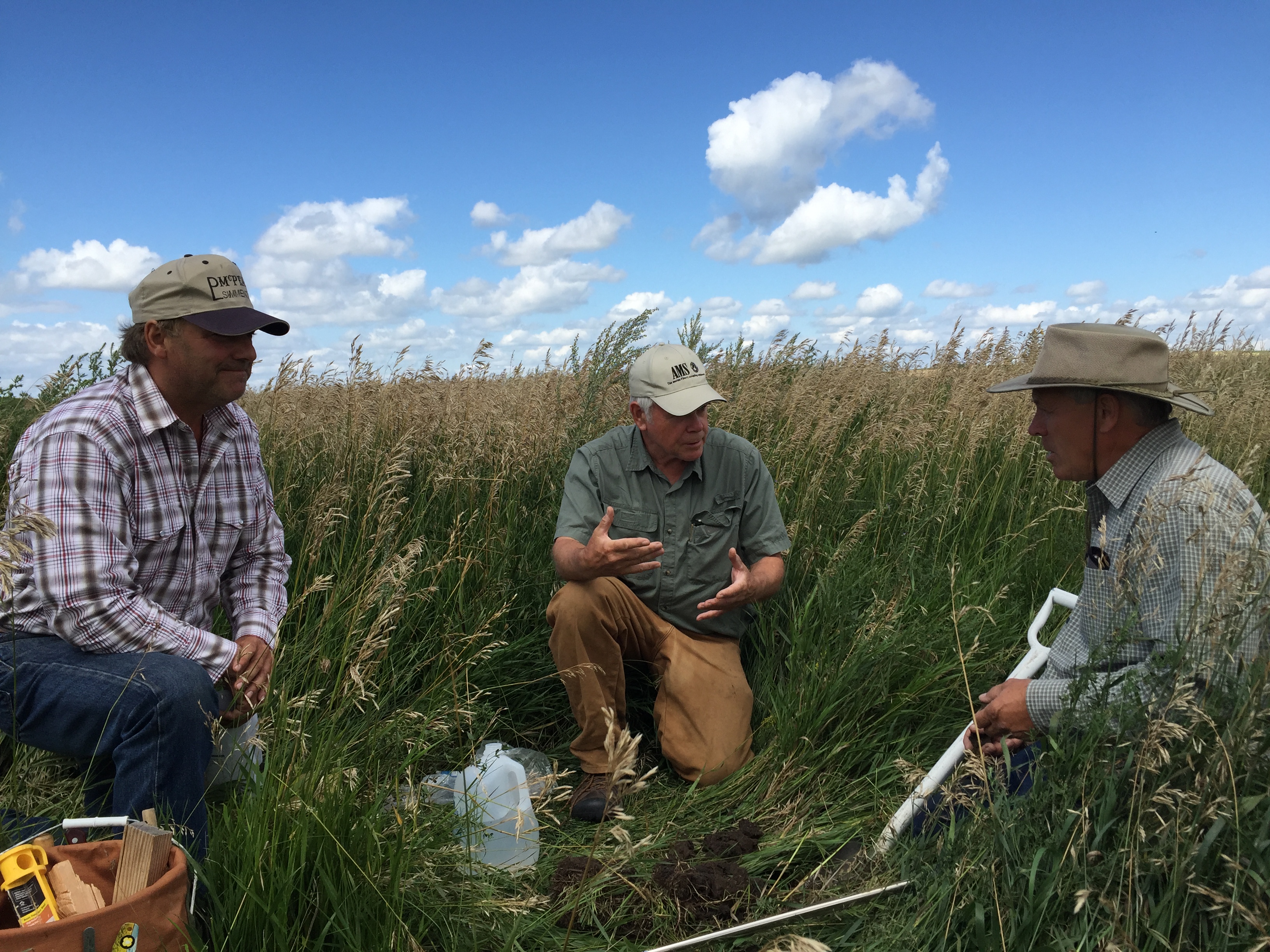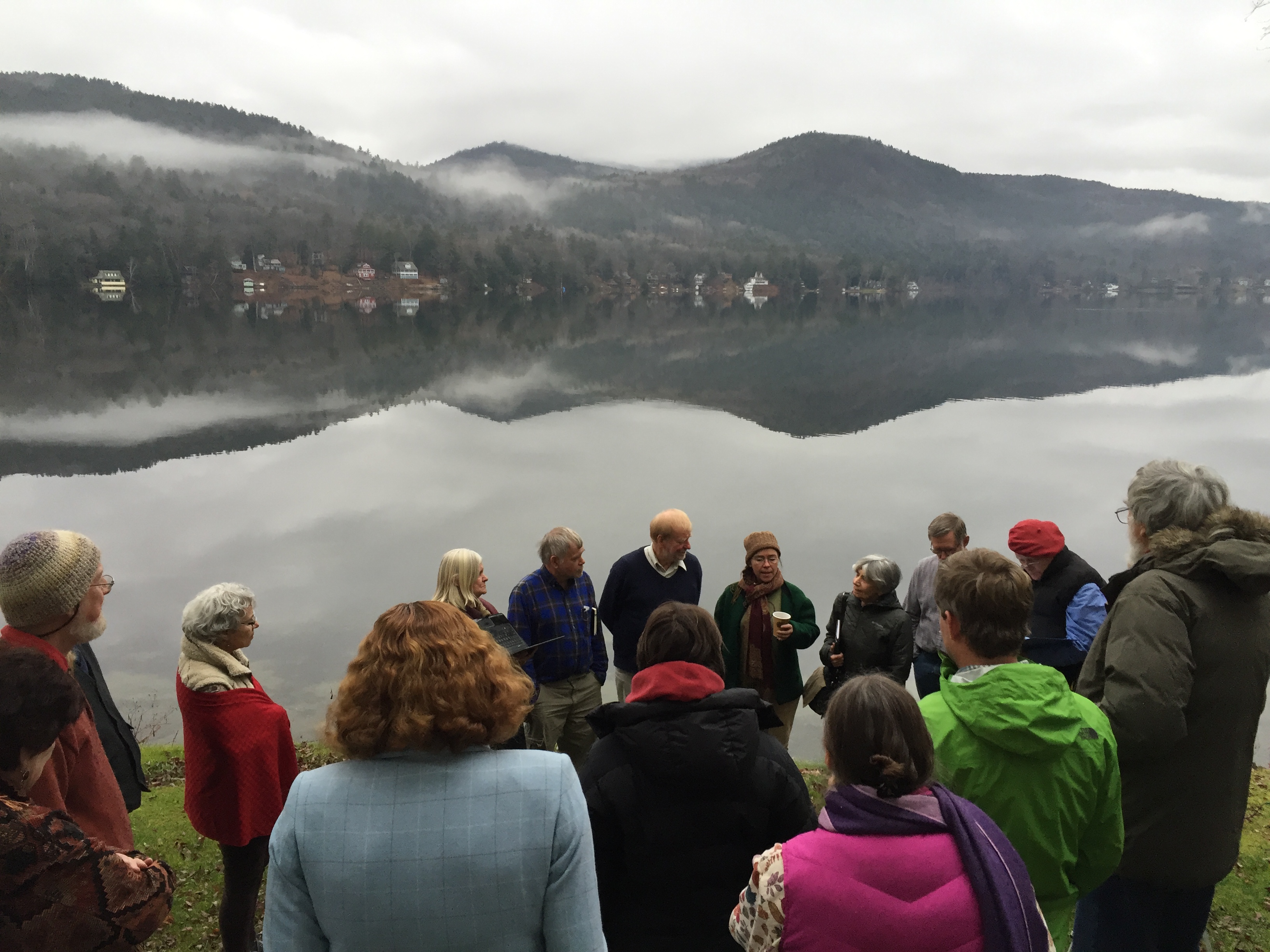 Soil health and structure is the background and center of gravity for most of our big issues, including water, agricultural productivity, local economies, and resiliency to extreme weather events. Here Todd McPeak, Peter Donovan, and Jay Fuhrer are testing water infiltration in one of Todd's hayfield/pastures in North Dakota. Photo by Didi Pershouse
Soil health and structure is the background and center of gravity for most of our big issues, including water, agricultural productivity, local economies, and resiliency to extreme weather events. Here Todd McPeak, Peter Donovan, and Jay Fuhrer are testing water infiltration in one of Todd's hayfield/pastures in North Dakota. Photo by Didi PershouseThanks to all of you who have supported us in 2016, we've been working this past year on ways to make it easier for you to participate in growing a shared, local intelligence on soil health and watershed function. We invite you to try one or more of the following.
- Try our new flexible web app, https://atlasbiowork.com. (You can find a short intro with video at here.)
- Learn what your conservation district, watershed group, municipal authority, or environmental education programs are doing. Where are the opportunities, and who are the people who are already seeing them? How might you help them deepen their questions or set new goals? Using our new learning resources to facilitate self-education programs can help your community see larger contexts and new opportunities.
- Go outside and see what's going on around you. Is soil health and watershed function improving, declining, or both? Our new step-by-step monitoring guide (and the older version) give some advice for making the most of these observations--which can then be uploaded directly onto maps through https://atlasbiowork.com.
- Give us some suggestions on how atlasbiowork, our learning resources, and Land Listeners training might add value to such work in your region or area. For example, how might some kind of "Soil Health Challenge" help increase participation in your region, broaden the knowledge base, help recognize those land managers who are making a difference, and check the effectiveness of policies and programs?
- Send us a donation to further our work, along with your suggestions or comments. We are a 501c3 nonprofit and can give U.S. donors a tax deduction with their donation. There is a DONATE button on the right hand side (at bottom on mobile version), or you can send checks to Soil Carbon Coalition, 501 South Street, Enterprise, OR 97828.
In our recent Soil Carbon Sponge Seminar and think tank, Australian soil microbiologist Walter Jehne encouraged us to set an "audacious goal" and to organize our work around it, rather than recreating the sometimes ineffective social structures that have gotten us to where we are. Rehydrate California, Oklahoma, or even Syria? Clean up Lake Erie or Lake Champlain? Let us know what audacious soil-health and landscape-function goals you'd like to work on this coming year. An audacious goal can unify people in unexpected ways. especially if we can show others what is possible.
best wishes for the new year,
Didi & Peter

Shift happens ===>, and we're interested in helping you facilitate it.

At our Soil Carbon Sponge Seminar and Think Tank in November and our Land Listeners Training in September, Didi brought together farmers, policy people, scientists, and educators for intensive 3-day events where we could grow, challenge, and connect our community of current and emerging leaders in the soil health movement.
Recent Posts
Archive
Categories
- Events (2)
- policy and framing (23)
- ruminations (3)
Tags
- atlas (2)
Authors
- Peter Donovan (137)
- Didi Pershouse (3)